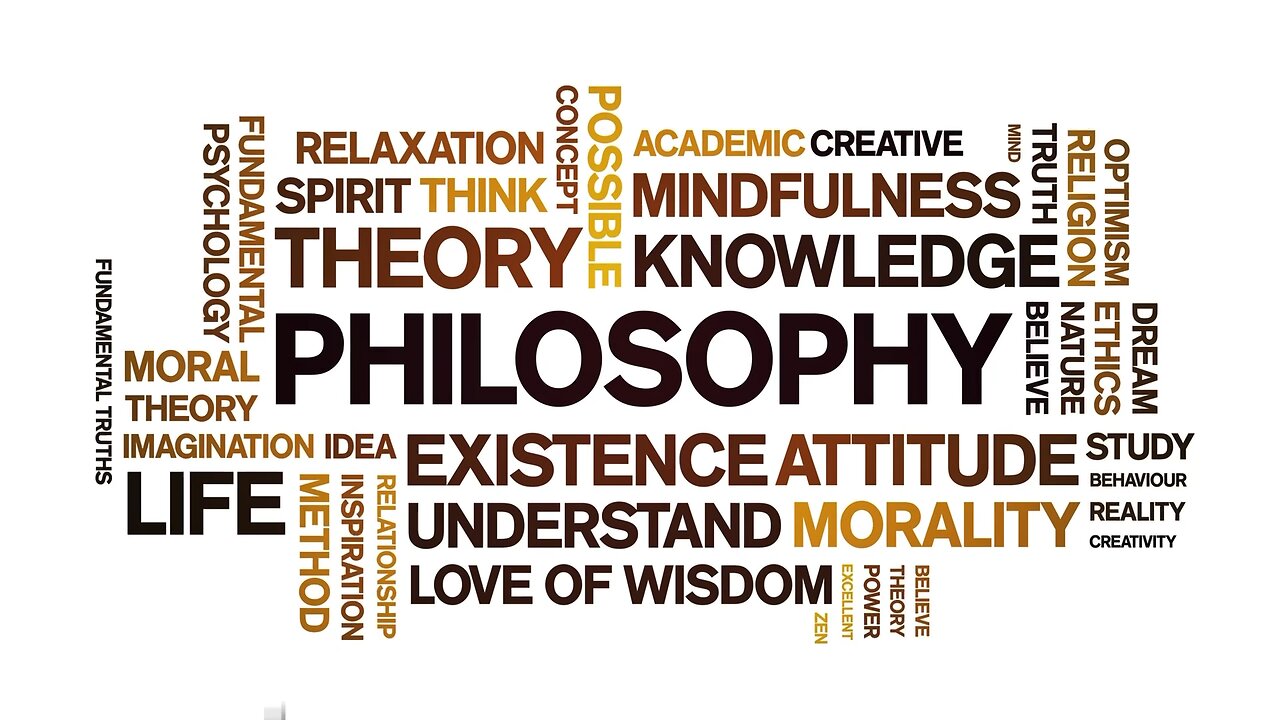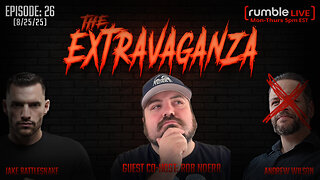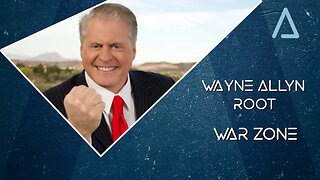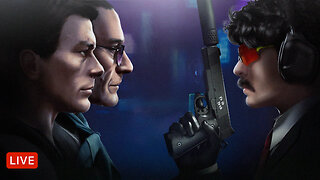Premium Only Content

The Grand Paradox of Intellectual Humility or How I Became a Master of Knowing Nada
#IntellectualHumility #KnowledgeParadox #MasterOfNada #PhilosophyInsights #WisdomJourney
#KnowingNothing #SocraticWisdom #ThoughtProvoking #MindfulLearning #HumilityInKnowledge #LifelongLearning #IntellectualGrowth #SelfAwareness #PhilosophicalThoughts #PersonalGrowth
In the grand cosmic joke that is our quest for knowledge, there is a punchline that has been delivered with impeccable timing and irony since the time of Socrates, and likely even before that old chap decided to annoy his fellow Athenians with incessant questions. The joke's setup is as follows: ambitious Homo sapiens, armed with an oversized brain and undersized humility, set out on the valiant quest to know everything. The punchline? The more they learn, the more they realize they don't know squat. Ladies and gentlemen, behold the Biggest Paradox of All - the black hole of wisdom, the Bermuda Triangle of intellect, where all certainties vanish without a trace.
Picture this: you start your life as an adorable, drooling baby, absolutely certain of the world's mechanics. You cry, you get fed. You throw a toy, and it magically reappears in your crib, thanks to the benevolent giants (parents) who serve your every need. Life is simple; life is good. Fast forward a few years, and you are now a student, armed with a highlighter and a false sense of confidence. You tackle algebra, history, and the sciences with the bravado of a knight going after a dragon. Every test you ace inflates your ego just a little bit more. You are the master of your middle school universe.
Then, one day, you stumble upon a subject that doesn't quite fit into the neat equations and memorizable dates. Philosophy, they call it. You encounter a fellow by the name of Socrates who famously declared, "I know that I know nothing." Pfft, what a quitter, you think. But as you delve deeper into the rabbit hole of critical thinking, you begin to question… well, everything. Why is the sky blue? Why do we dream? What is the meaning of life? And why on earth can't philosophers just give a straight answer to any question?
Fast forward a bit more, and you're in the throes of higher education or, as I like to call it, the gladiatorial arena of "Who Can Sound the Most Pretentious While Being the Most Confused." Here you are, surrounded by textbooks thicker than a slice of deep-dish pizza, and every page you turn seems to whisper, "You know nothing, Jon Snow."
You learn about quantum mechanics, where particles can be in two places at once, and cats can be both dead and alive. Common sense waves the white flag and surrenders. You study economics, where every theory is perfect until humans get involved. You delve into psychology, only to find out that half of your decisions are made by a brain you can't control, and the other half are just your brain trying to justify what it already did.
The more you read, the more you realize that knowledge is not just a vast ocean but an infinite one, where every answer you grasp only leads to a dozen more questions. And those questions breed like rabbits on a love-induced frenzy. You learn about chaos theory, and suddenly you can't even butter your toast without considering the butterfly effect. Will my choice of jam today lead to a hurricane in the Caribbean next week? The uncertainty is maddening.
You enter the workforce, armed with your shiny diploma and a caffeinated eagerness to change the world. Only to find that the real world operates on a different set of rules, most of which are unwritten and some of which are downright nonsensical. You sit in meetings where buzzwords fly around like mosquitoes in a swamp, and you realize that if you had a dollar for every time someone said "synergy" or "think outside the box," you could retire comfortably to a beach in Bali.
And as you climb the ladder of so-called success, you find that with every rung, your view of the horizon expands, and what you see is an ever-unfolding landscape of complexity. You attend conferences where experts speak with such confidence you'd think they had the universe's instruction manual. But late at night, in the quiet corners of your mind, you admit that they, like you, are probably winging it.
In a world obsessed with knowing, admitting ignorance is the ultimate taboo. Yet, there is a strange comfort in embracing the paradox of knowledge. The more you learn, the more you are in awe of the mysteries of the universe. You realize that not knowing is not a weakness, but a sign of wisdom. It's the first step to truly understanding that the universe is a wondrous, confounding place, and perhaps our role is not to conquer it with our intellect, but to dance with it in our ignorance.
-
 1:43:44
1:43:44
MTNTOUGH Podcast w/ Dustin Diefenderfer
16 hours agoEddie Penney: DEVGRU to Single Dad of 3 Overnight | MTNPOD #130
222 -
 1:28:57
1:28:57
Kim Iversen
2 hours agoSomeone Stole Kim's Identity — And Bought a Car! | Dr Drew Pinsky On Sex, Drugs & Censorship
23.4K16 -
 1:07:00
1:07:00
TheCrucible
2 hours agoThe Extravaganza! Ep. 26 (with special guest host Rob Noerr) 8/25/25
54.9K3 -
 7:35
7:35
Tundra Tactical
1 hour agoI Can’t Believe I’m Saying This… 2011’s Are Actually COOL Now?! 🤯
3.1K -
 LIVE
LIVE
Wayne Allyn Root | WAR Zone
4 hours agoWAR Zone LIVE | 25 AUGUST 2025
127 watching -
 LIVE
LIVE
Outspoken with Dr. Naomi Wolf
3 hours ago"CPA/Whistleblower Sam Antar Identifies Millions in Fraud Behind Mamdani Campaign"
147 watching -
 41:26
41:26
Kimberly Guilfoyle
3 hours agoMaking DC Safe Again, Live with Daily Signal's Tyler O'Neil | Ep249
74K22 -
 6:13:58
6:13:58
Dr Disrespect
7 hours ago🔴LIVE - DR DISRESPECT VS. JEAN-CLAUDE VAN DAMME - HITMAN
69.1K12 -
 32:43
32:43
Uncommon Sense In Current Times
4 days agoAre Women’s Sports Under Attack? | Penny Nance on Protecting Title IX & Biblical Truth
19.5K -
 LIVE
LIVE
LFA TV
23 hours agoLFA TV ALL DAY STREAM - MONDAY 8/25/25
973 watching